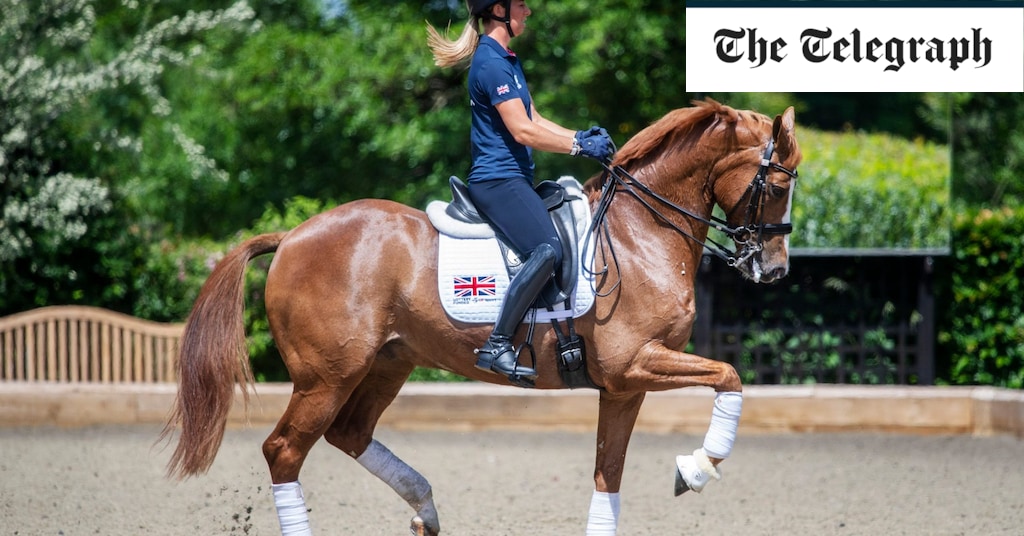
Charlotte rose to global stardom at London 2012 where she won double gold in dressage, Britain’s first ever individual Olympic gold in the sport.
A self-made rider, she has risen to the top of dressage through an even blend of hard work and natural talent under the tutelage of her mentor, trainer, team-mate and friend, Carl Hester, whose yard she visited on work experience and never left. ‘Carl and Charlotte’ have become one of the great double acts in sport, as recognisable in horsey circles as Torville and Dean are in skating.
Riders lead lives quite unlike other Olympians, however. They are required to run businesses, manage staff, find investors and teach in addition to their own riding. There is no holiday for them after Paris. They will head straight back to work on their young horses, often riding 10 or so a day.
They are very much in the public eye, therefore, and any rough or impatient treatment of a horse when they are tired or frustrated can be ruinous.
Charlotte’s wisely worded statement hints at such an issue, but it comes at a time when horse sport has already been working hard to shore up bruised public opinion, and protect its place in the Olympic roster. An increasingly urban population struggles with the idea of horses falling over fences or being asked for athletic exertion, oblivious to the fact that – as with people – while it’s not for all horses, many of them love it.

